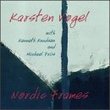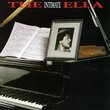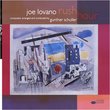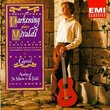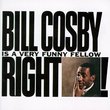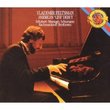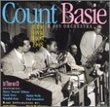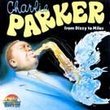| All Artists: Richard [Classical] Wagner, James Levine, Metropolitan Opera Orchestra, Heinz Zednik, Reiner Goldberg, Birgitta Svenden, Ekkehard Wlaschiha, Hildegard Behrens, James Morris, Kathleen Battle Title: Richard Wagner: Siegfried Members Wishing: 2 Total Copies: 0 Label: Deutsche Grammophon Release Date: 3/10/1992 Genre: Classical Style: Opera & Classical Vocal Number of Discs: 4 SwapaCD Credits: 4 UPC: 028942940727 |
Search - Richard [Classical] Wagner, James Levine, Metropolitan Opera Orchestra :: Richard Wagner: Siegfried
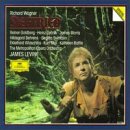 | Richard [Classical] Wagner, James Levine, Metropolitan Opera Orchestra Richard Wagner: Siegfried Genre: Classical
|
Larger Image |
CD DetailsSimilar CDs
Similarly Requested CDs
|
CD ReviewsExceptional Siegfried Scott Jelsey | Houston, TX United States | 01/24/2004 (5 out of 5 stars) "Levine and the Met Orchestra play the most refined and beautifully detailed account of this score on record. Stunning performance. Reiner Goldberg is not as large of voice as some Siegfrieds, but phrases eloquently and always seems engaged dramatically. James Morris is THE Wotan of our time - he concludes his second Ring recording in style here. Hildegard Behrens is in fresh, soaring voice for her Act III duet. Again, not as big a voice as say, Nilsson, but solid and very expressive delivery. Kathleen Battle is a treat as the Forest Bird - gorgeous timbre, if not exactly birdlike in sound. Ekkehard Wlaschiha as Alberich and Heinz Zednik as Mime are both outstanding. The former truly evil, and the latter actually singing rather than shouting his part, as so many Mimes tend to do. Kurt Moll is a noble Fafner - luxury casting in this smallish role. One of the best modern Siegfried recordings." Setting aside Goldberg's satisfactory Siegfried, this is one The Cultural Observer | 12/30/2008 (5 out of 5 stars) "Several listeners have pinpointed the greatest weakness in Levine's Ring as this Siegfried mainly because he contracted Reiner Goldberg to sing the title role. While several of the things said here are true, people forget to point out the other facets of this recording that make it such a compelling version of Siegfried. At the time of the recording, and in fact, I would say, throughout modern recording history, there haven't been many great Siegfried's who truly had the kind of ringing, free voice that a Melchior or a Suthaus possessed in sheer abundance. I would even go to say that while Wolfgang Windgassen gave the world a good deal of fantastically vocalized Siegfried's, I found his voice somewhat white-toned and lacking in beauty for the part. He did have the stamina, and he had reserves of power to sing the part like no one else did after him, but I sometimes feel that history gives him too much credit for accomplishing something that was all in all fair game. The world would have to wait for the 80s to find someone who was truly satisfying in the part--Siegfried Jerusalem. When he sang the title role in Bayreuth and in other parts of the world, I think the world found one of the most mellifluous heldentenorinos who offered not only pleasant vocalism but also a sense of characterization that never became hammy. Unfortunately, he was only contracted to sing Loge in this recording. Siegfried had to go to Reiner Goldberg, a singer who for all his vocal potential failed to make his Siegfried live constantly for the duration of this opera and Götterdämmerung. That is not to say that he is no viable Siegfried. There are several poignant moments in this recording where Goldberg showed that he had a Siegfried in him. When his voice isn't put under stress, what comes out of his throat is one of the glories of the human vocal instrument. And he also sings all of the notes efficiently. Only in a few moments do we see a few annoying and unnecessary details creeping into his artistry--such as a lack of youthful timbre, an absence of care for words, and a pinched tone that rears its ugly head when things to uneasy and high (fortunately, this only rarely happens in this recording). All in all, he still sings a good enough of a Siegfried that unlike Manfred Jung, John Treleaven, Jon Frederic West, and in some occasions, Rene Kollo, is actually beautifully vocalized in parts. A little bit more involvement, however, would have been preferable.
Setting Goldberg aside, everything else in this recording describes perfection. The Metropolitan Opera Orchestra, after multiple listening sessions, is comparably one of the best ensembles ever to record this work. The pristine sounds, the tonal perfection, that crystalline beauty...not even the Vienna or Berlin Philharmonic Orchestras developed such a level of refinement that is displayed in this recording. From the ominous Vorspiel to shimmering Forest Murmurs to the rapturous love duet, every single detail is covered flawlessly by the orchestra without ever compromising the dramatic qualities of the work. Mr. Levine, who is sometimes criticized for plodding tempi in Wagner, draws out one of the most expansive and dare I say lyrical interpretations of this massive score that rivals Karajan's vision with his Berlin Philharmonic years earlier and to a certain extent, Solti's highly praised Ring with the Viennese. In my opinion, only Barenboim and the great Ringmasters (Krauss, Keilberth, Böhm, Knappertsbusch) of the early 50s had the musical acumen to make Wagner live and breath the way that Levine does with his New York Ring. Listen to how he makes the forging scene or the exchanges between Wanderer and Mime sound chamber-like, yet at the same time, monumental. People may not look favorably on this Ring at the present moment, but give it a few years and critics will perhaps see it in a different light. The cast is by all standards definitive in the Wagnerian mould. James Morris sings what is in my opinion the greatest Wotan since Hans Hotter. Every musical line escapes not the potential of his instrument, and where he invests drama and sensitivity he also adds beauty and lyricism. There is no hoofing or shouting here. What he sings is what is on the score, and what is on the score he sings better than any Wotan in history, even Hotter. Heinz Zednik sings perhaps the best Mime on records. It is not overacted like Stolze's or unforgivably acidic like Graham Clark's. It is well balanced, witty, and humorous. It also helps that he has the precision to counter Goldberg's Siegfried line for line. Ekkehard Wlashicha is the best Alberich since Neidlinger, not only singing with a glorious voice but also adding that element of villainy that convinces the listener why he triggered this series of events in the first place. Kurt Moll is absolutely perfect for Fafner. Has there been a more glorious bass voice since his? Kathleen Battle is sweet and chirpy as the forest bird, and Birgitta Svenden's Erda, although less leaden than many an Erda, sounds positively correct and alert. Which brings us to Hildegard Behrens' Brünnhilde. I found her work in Walküre to be absolutely enrapturing. Her Götterdämmerung Brünnhilde was just as dramatically compelling, but it found her in somewhat compromised vocal resources. This Siegfried Brünnhilde, on the other hand, is perfect for her instrument as it lies very high. She is one of the more interesting singers who played this part, and that dramatic acumen coupled to her crystalline voice makes her a satisfying Brünnhilde in this respect. She is no Nilsson or Varnay, but she more than makes up for her lack in vocal heft and opulence with an interesting take on the character. This isn't essential like Solti's Siegfried is essential, but I would recommend it as a supplement for anyone hoping to know what quality music was coming out of New York in the late 80s. " |

 Track Listings (10) - Disc #1
Track Listings (10) - Disc #1

